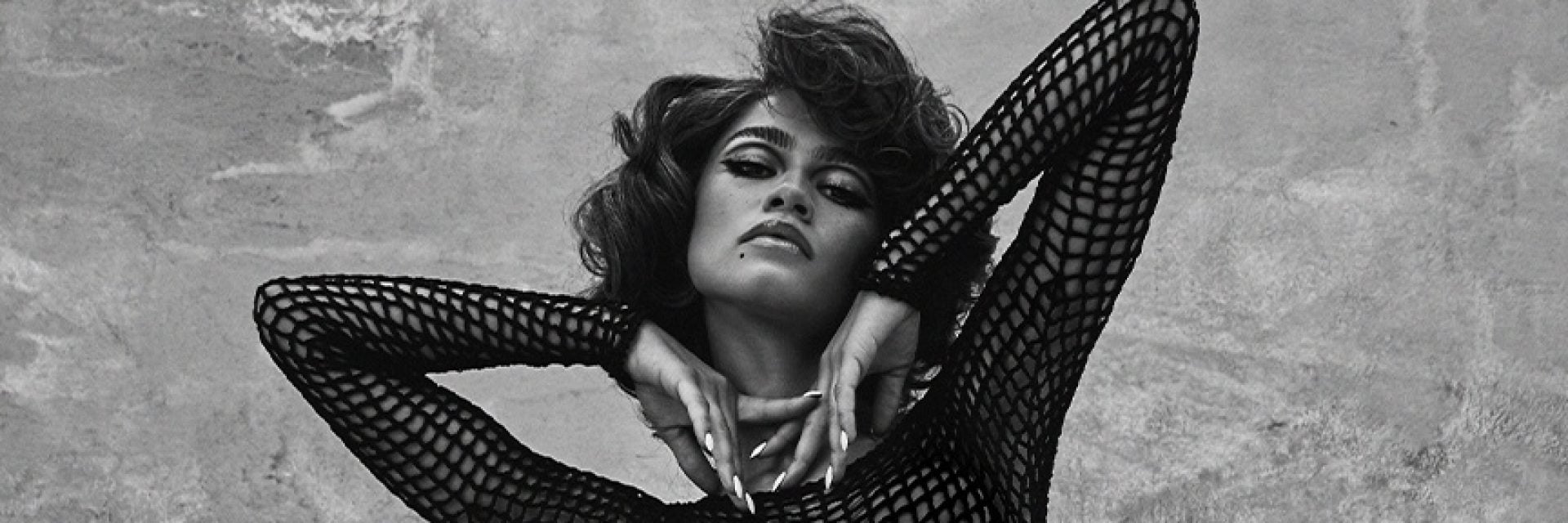Zendaya is one of Black Hollywood’s wildest dreams.
At just 24 years old, the actress has led two successful series on two of the biggest networks in TV land; played the lead in a huge blockbuster Marvel film (a role that up to that point had only ever been portrayed by White women); and become the youngest woman ever to win the Emmy for outstanding lead actress in a drama, achieving that this past September. For a decade we’ve watched Zendaya Coleman navigate her career, from child star to critical darling, with a level of talent, gumption and style that shows she hasn’t just arrived—she’s here to stay.
Yet, all that being said, perhaps the most striking thing about Zendaya is her ability to remain grounded through it all. The Oakland native is brave enough to speak truth to power and humble enough to know when to lend her spotlight to others. She possesses a level of grace and authenticity that gives you hope for the generation she lights the way for.
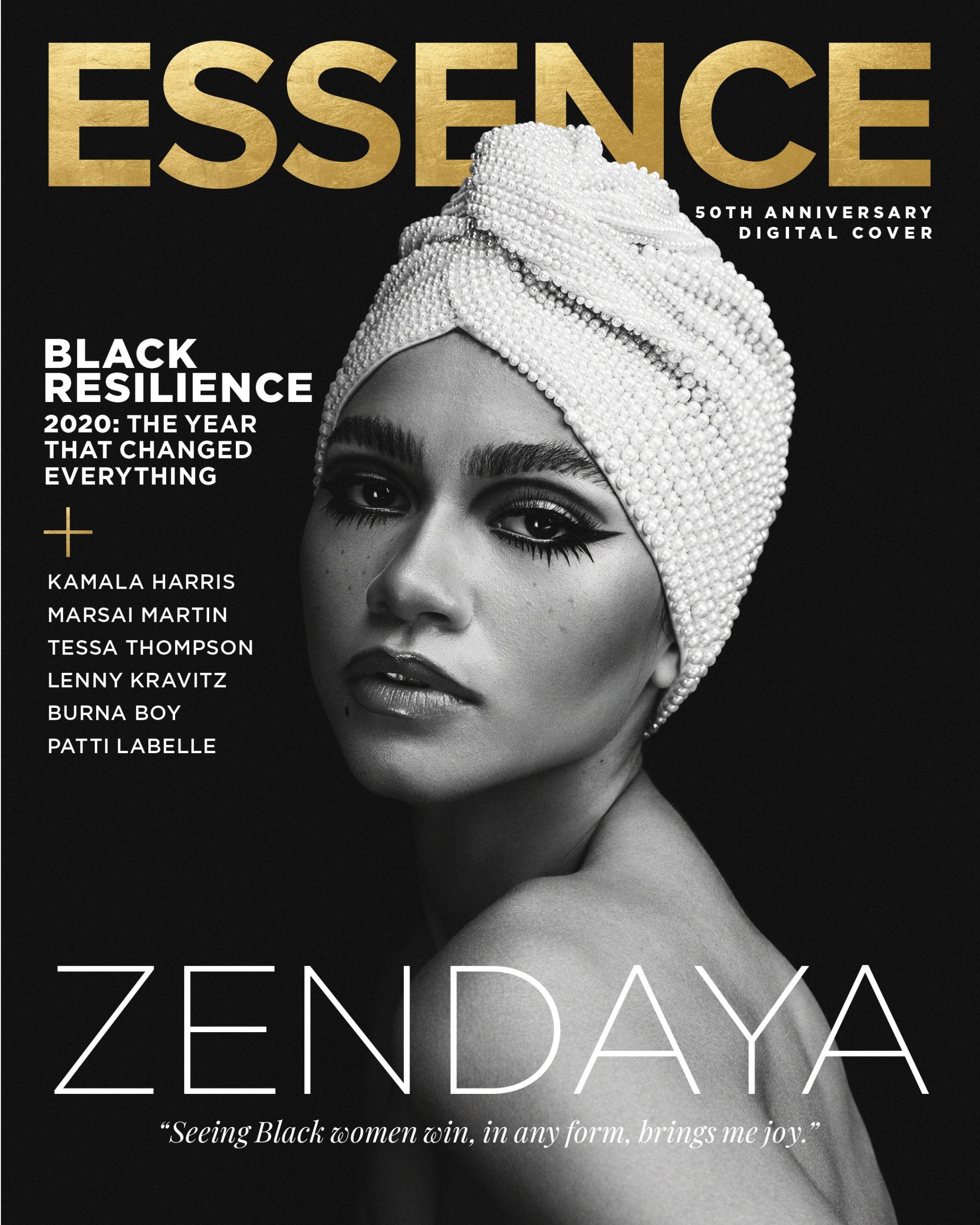
After an hour on the phone with the Euphoria (which returns for two special episodes in December) star for this interview, it becomes clear she’s a manifestation of the hopes and hard work of many of the legends who have graced this magazine’s cover before her. Zendaya’s awareness—and constant intention to pay homage while carrying our legacy forward—makes her the perfect star to pay tribute to the icons of the past as she becomes a leading force in the present.
First of all, congratulations on your historic Emmy win. What was going through your mind right before they called your name?
ZENDAYA: There’s a video of me that a family friend took while I was waiting, and you can see my leg shaking. In my head I was like, Dude, just chill out. What will be, will be. I remember taking a deep breath, and then hearing my name, and then my family screamed. I was worried that if they kept screaming for too long, I wouldn’t have any time to actually say anything—but I didn’t want to stop them, because they were having a great time. It was a very special night. I’ll definitely remember that one forever.
I love that you focused your speech on how there’s hope in young people. Why was that important for you to champion during your big moment?
ZENDAYA: It just feels like a lot of the time, especially for young Black people, you’re birthed into a system that’s not built for you. It’s on us to take it from here and hopefully make it better. But it doesn’t really look like that right now—and the people in charge don’t like to listen to us. But it’s important to lean into hope and lean into the beautiful things that I see my peers doing, whether through their activism or through their art. It’s extremely inspiring for me to watch and be a part of. I wanted to speak to the power of that and let them know, what you’re fighting for does mean something, and you are supported and seen.
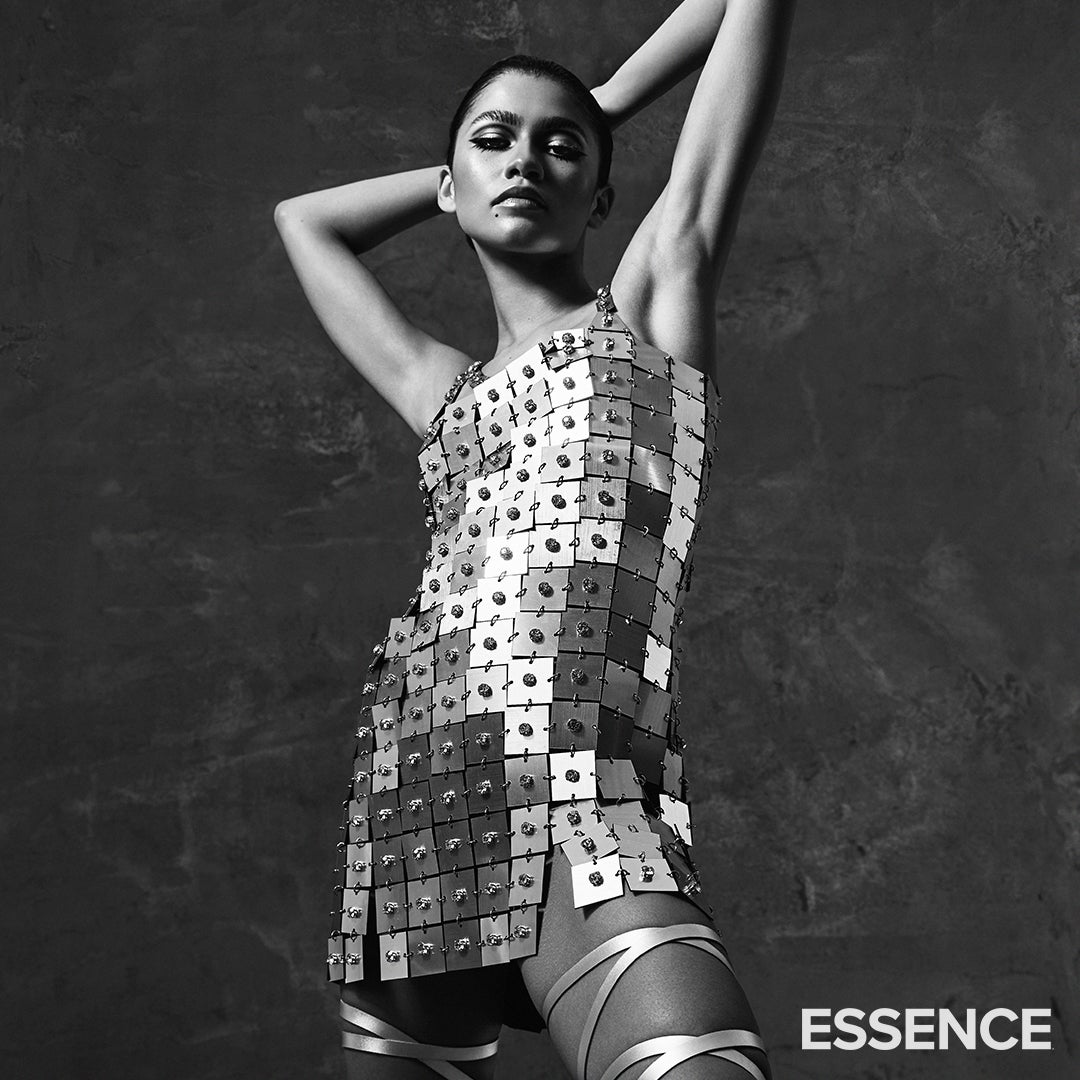
The significance of your win could easily be seen from the reactions across the internet, especially from young Hollywood. Your peers, like your Euphoria co-star Storm Reid and the Insecure cast, shared videos on social media of themselves screaming over your achievement. What did that support mean to you?
ZENDAYA: I’m honored to have that support, especially from my fellow young Black creatives. Through this Emmy’s period, especially, I felt a strong sense of support within our community, which I’m really grateful for.
Would you say that young Black Hollywood is continuing the sort of camaraderie that we’ve seen in the generations before you?
ZENDAYA: I think what’s slowly starting to happen is, artists like Issa Rae and Lena Waithe have created opportunities that have resulted in more of us being in these rooms. That’s such a special feeling, and I think it’s definitely changing the idea that there can only be “one at a time,” which is false. I love to see that genuine love and respect for each other’s work. I hope that we continue to expand that in all kinds of beautiful ways, because I think we’re on a really good path.
“A lot of what I do, specifically within fashion, is a tribute to the fashion icons who came before me, many of whom are Black women.”
You all make the future of Hollywood feel bright, which is why I love that your cover will be closing ESSENCE’s 50th-anniversary year. It feels like a passing of the torch. What does this moment mean to you?
ZENDAYA: I’m incredibly grateful—because without the incredible, iconic people who have graced the cover before me, I wouldn’t be here, standing on the shoulders of giants. To be able to do this cover at this time is really special to me. I also felt very excited that ESSENCE allowed Law [Roach] and me to be a part of the creative team and do something a little bit different. I had so much fun on this shoot paying homage to Donyale Luna, the first Black supermodel. A lot of what I do, specifically within fashion, is a tribute to fashion icons who came before me—many of whom are Black women. I love the way it turned out. I’m very proud of it. It’s one of my favorite cover shoots I’ve ever done.
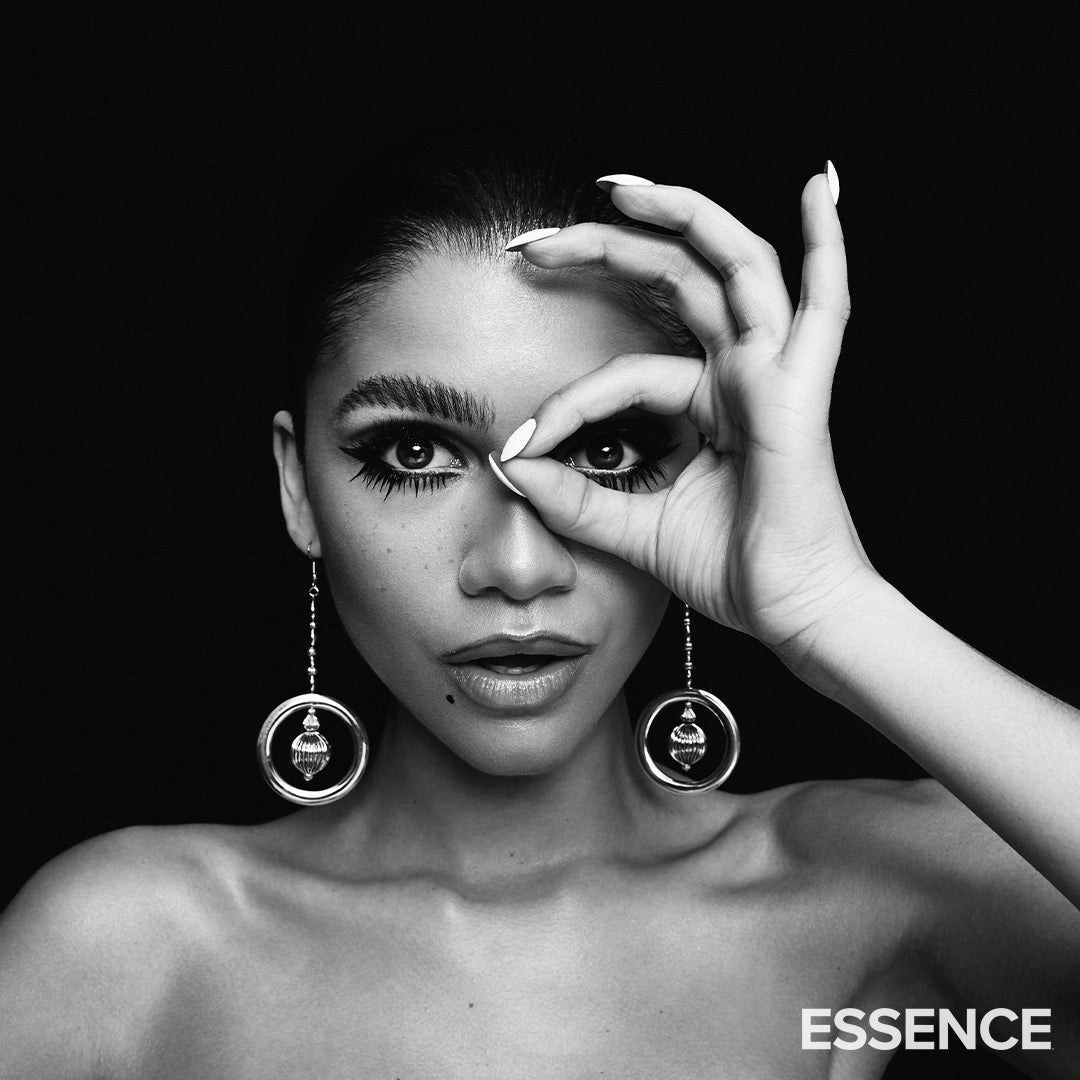
When I think of the legacy you’re creating, one of the first things that comes to mind is the all-Black glam team you maintain around you. Your team creates this space for you in the high-fashion conversation that Black women don’t always get to be a part of. How intentional are you when it comes to lifting as you climb—and being cognizant of what you and Law Roach are doing in fashion?
ZENDAYA: That’s always been important to Law and me. Law teaches me so much about fashion history. It’s really important to us to support young Black designers and Black photographers, because the support usually just isn’t there for them. A lot of smaller brands and designers were the ones that supported me before I was being dressed by bigger brands. There’s rarely a look, or anything that we do in fashion, that doesn’t have a story. Everything is done with intention.
Another partner of yours is Euphoria creator Sam Levinson. You two were among the first to find a way to adapt and make a film, Malcolm & Marie, when the pandemic first shut Hollywood down. What was that experience like, and how did it help you cope with the quarantine?
“It’s important to lean into hope and lean into the beautiful things that I see my peers doing, whether through their activism or through their art.”
ZENDAYA: It was a dream, because I’ve always wanted to be able to just strip everything away. I love what I do—and like most people, I was finding ways to stay inspired and stay creative, and luckily I know people who are the same way. It was great sitting in a room with John David Washington, Marcell Rév and Sam, literally writing scenes as we went, coming up with ideas as we moved through the characters, and finding new things every day. That was the coolest part. That is why I do this.
I was very excited—and maybe slightly jealous— to see John David Washington was playing your romantic lead. You both are in such exciting places in your careers.
ZENDAYA: I was just lucky to share the stage with John David Washington, who is brilliant. He’s extremely talented and such a force. Being able to work across from him definitely pushed me to be better. It was very special.
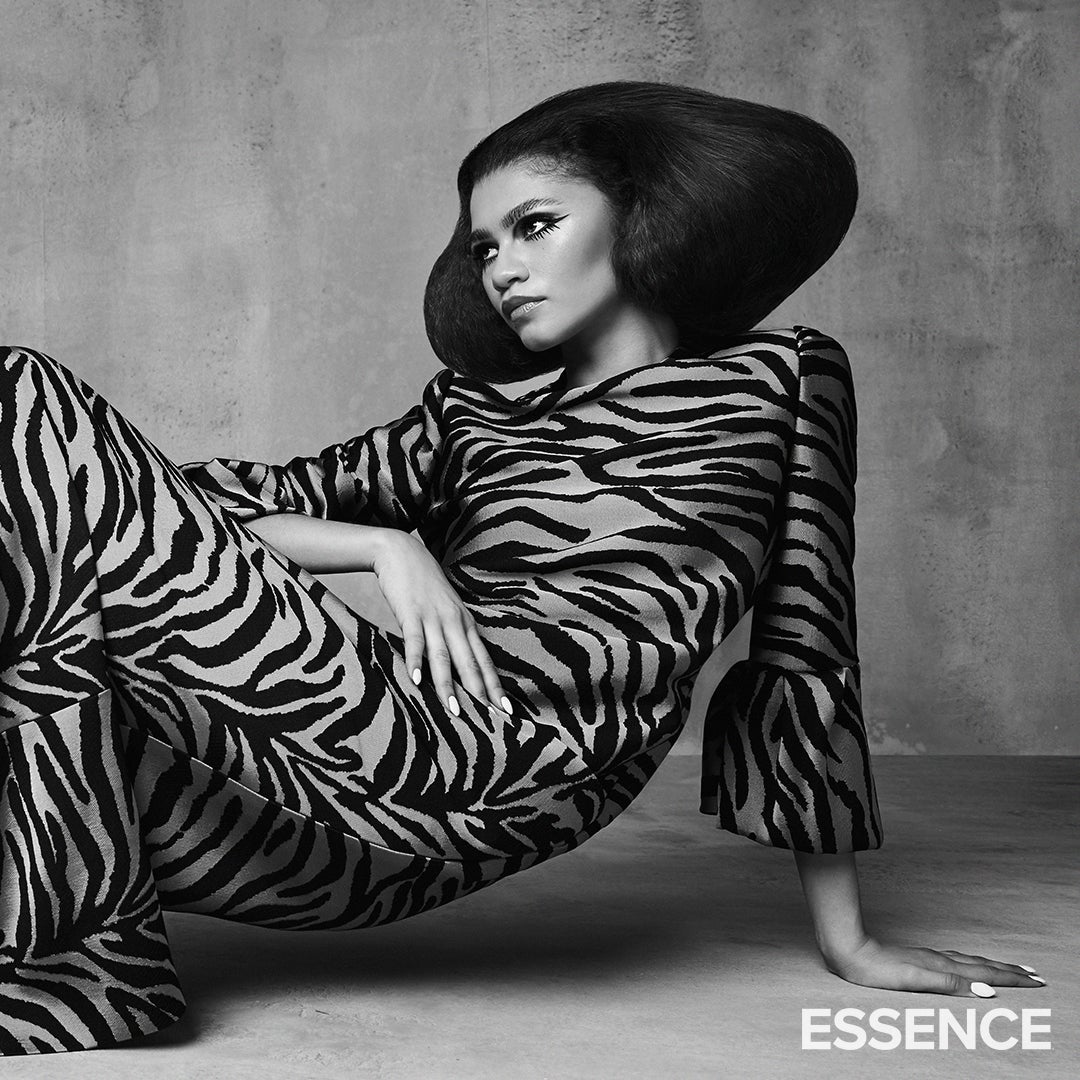
You co-produced Malcolm & Marie [which was acquired by Netflix last month] and have joined forces with Reese Witherspoon to produce A White Lie, which you will also star in. Do you plan to become more involved behind the scenes?
ZENDAYA: I love being able to create what I want to see made. I’m also really interested in cinematography. Maybe I’ll become a director, or a director of photography. I am just really taking in all that knowledge and learning as much as I can. I really love the art of actually making film.
I’ve learned you and Levinson are also currently filming something for the Euphoria fans. [At press time, HBO announced Euphoria will return with two special episodes and the first one airs December 6.]
ZENDAYA: Sam and I talk a lot over the phone, and during one of those conversations he was like, “What if we just did a few little in-between episodes that we could put between the seasons, just to give people something?” He wrote these beautiful episodes that actually stemmed from a scene he wrote for the second season that I was obsessed with. Then he basically turned it into one long episode. The storytelling method is so different from the first season. It feels like Euphoria but feels nothing like Euphoria, in a beautiful way. And it talks about things—specifically for Hunter Schafer’s character, Jules—that I think have never been explored before. You get to sit with the characters in a deeper way. I was so excited to be able to get back to it, because I miss playing Rue. Being able to get back into her Chucks definitely was very, very special for me.
I’m fascinated by how art manages to thrive during the most adverse times. We’re dealing with COVID, the Black Lives Matter movement and more, but Black storytellers are still out here, creating beautiful and nuanced work.
ZENDAYA: The level of creativity and ingenuity, especially in this time, is inspiring. Everything we’re faced with right now, specifically Black Lives Matter, is traumatic. These are our brothers and sisters we’re watching be murdered. I think to overcome that in any way, and also to allow ourselves that space to have joy, to have beautiful things, to take care of ourselves, to look after each other-—it’s so important.
It’s also been encouraging to watch Black people win in the midst of such a difficult year—but Black women, especially, tend to carry more guilt about that juxtaposition than most. Has that been something you’ve dealt with?
ZENDAYA: Absolutely. I understand it entirely. I felt weird celebrating my Emmy win. And it was only a few days later that we heard the Breonna Taylor ruling, which was devastating. We’re also often told not to celebrate our victories. I’ve seen a lot of tweets and stuff urging Black women to be gentle with themselves. I’ve been trying to learn more about that, and how I can help with that—because it really is so important right now.
It’s so layered—because while you may be feeling guilty, it’s also true that your Emmy win gave us a sense of joy that I felt the community needed at that moment. It was nice to see everybody have something to celebrate on the timeline.
ZENDAYA: Yes. When I was in quarantine and Megan Thee Stallion dropped the “Savage Remix” with Beyoncé, I’ve never felt more joy from a song coming out.
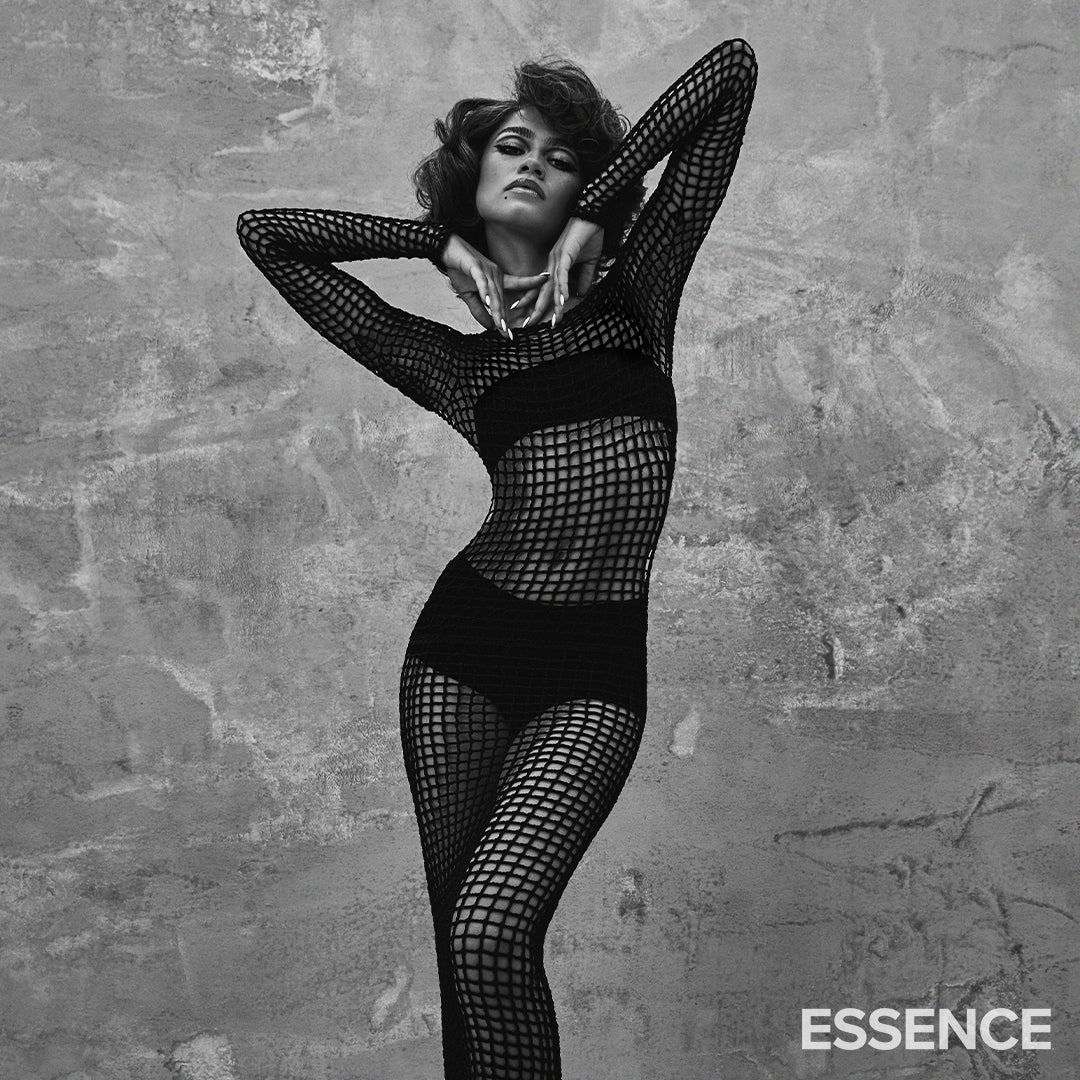
Ha! I was going to ask you what has been bringing you joy. I love that the “Savage Remix’’ is one of those things, because, same!
ZENDAYA: Seeing Black women win, in any form, brings me joy. I was just looking at Rihanna’s Savage X Fenty fashion show, and I was like, “You better, girl! Bad-gal Riri is giving us what we need right now!” Then there are also small things—like a conversation with my grandmother, who I have to call after this because I keep forgetting. Hearing her voice is like food for the soul.
Since this is the end-of-year issue, my last question for you is: What’s your New Year’s wish for Black women?
ZENDAYA: For us to continue to fully realize our power and harness it to do great things, because we are incredibly powerful. We’re often convinced that we’re not, and taught to shrink—but we have to believe in our collective power. I always think of that Beyoncé song, “They’ll never take my power, my power, my power.” Let’s take that energy into the new year.
Sylvia Obell (@sylviaobell) is a journalist and on-air talent who co-hosts Netflix’s Okay, Now Listen podcast. She profiled Lizzo for ESSENCE’s June 2019 issue.
Zendaya November/December 2020 ESSENCE cover credits:
Photography by AB+DM
Creative Direction and Fashion Styling by Law Roach
Hair by Larry Sims/Flawless/Forward Artists.
Makeup by Sheika Daley.
Manicure by Chaun Legend/opi/The Only Agency.
Set design by Ward Robinson/Wooden Ladder.
Production by Natalie Gialluca, Naydea Davis and Jordan Benston.
This interview originally appeared in the November/December 2020 issue of ESSENCE magazine, available on newsstands November 24.
